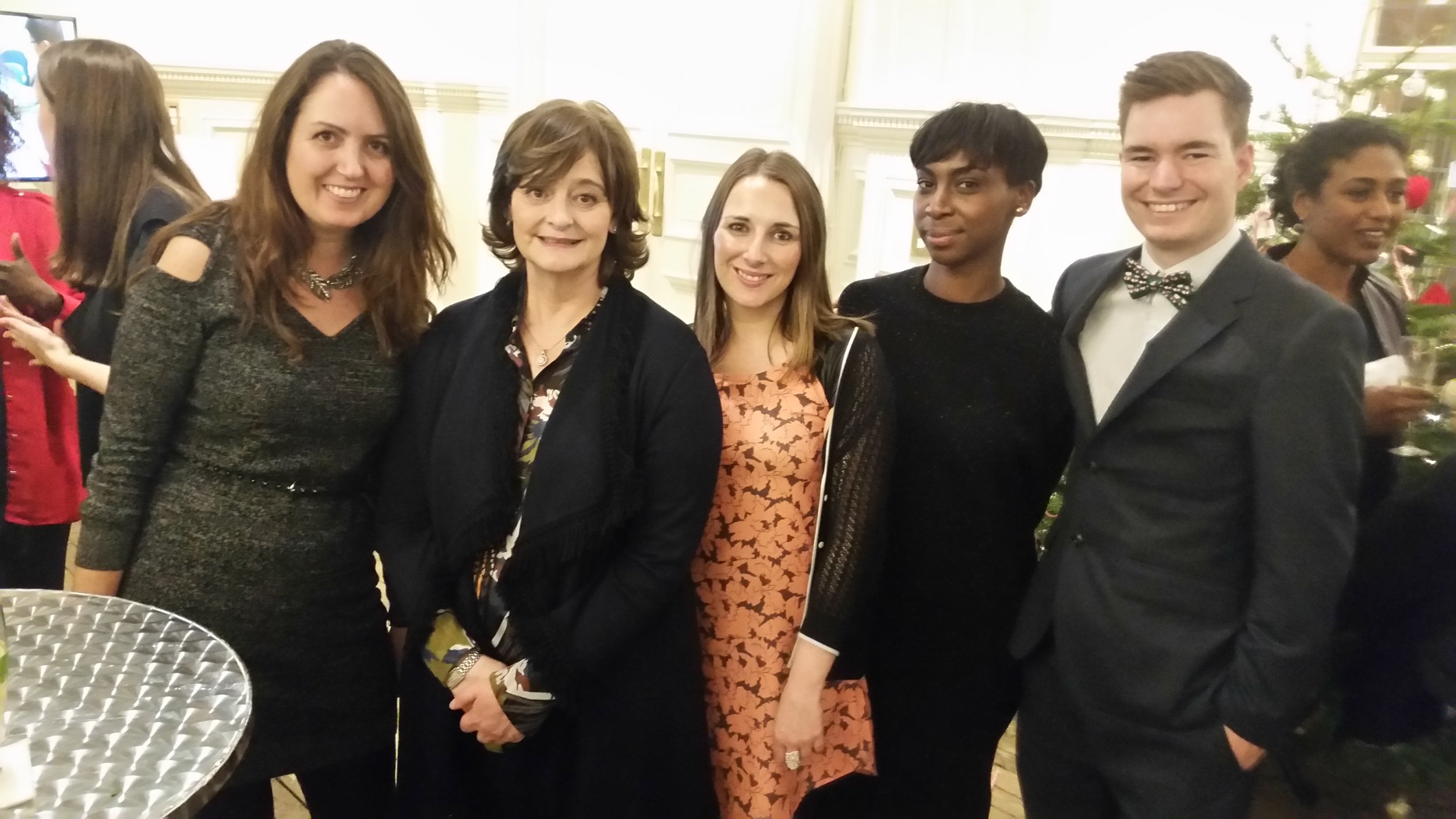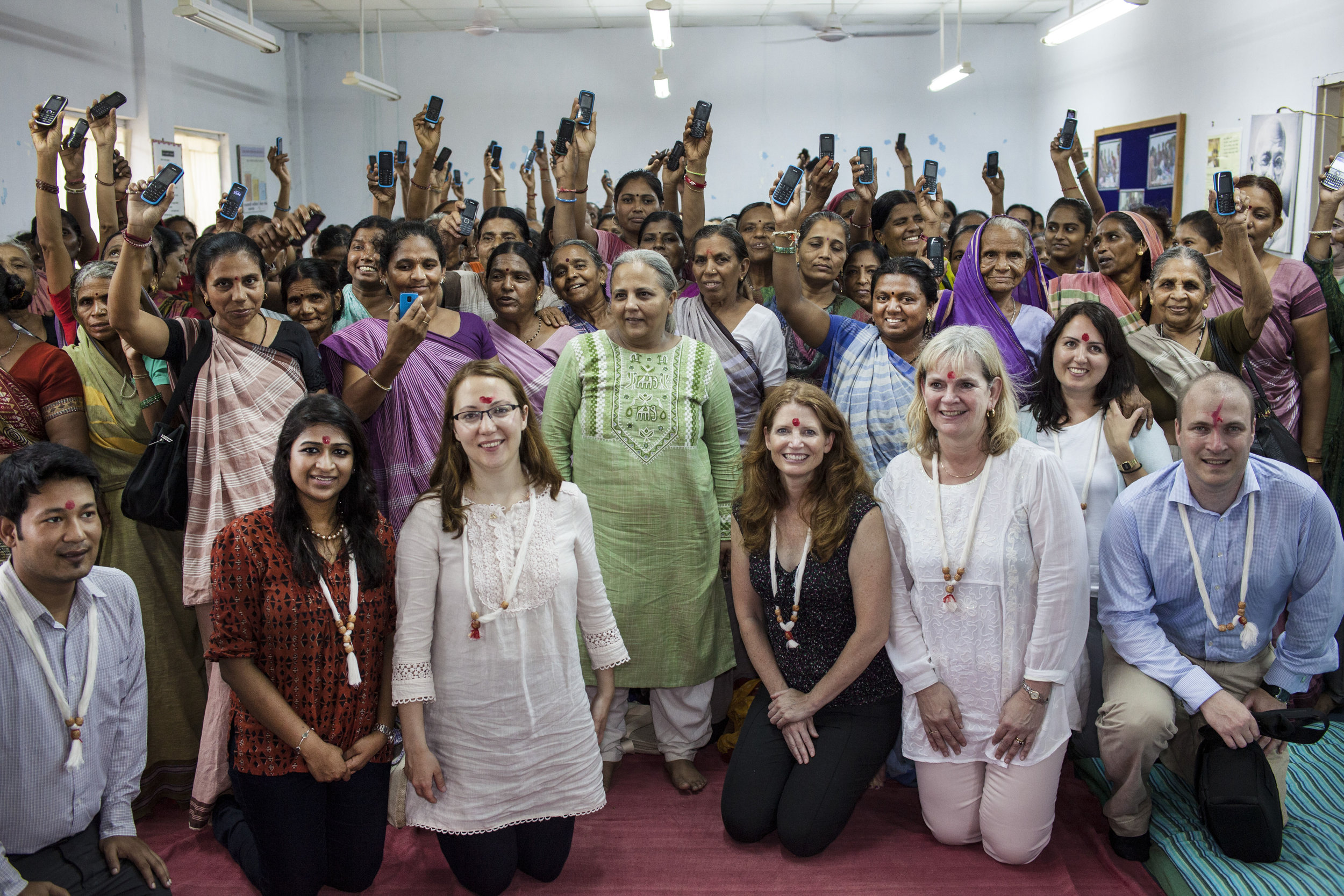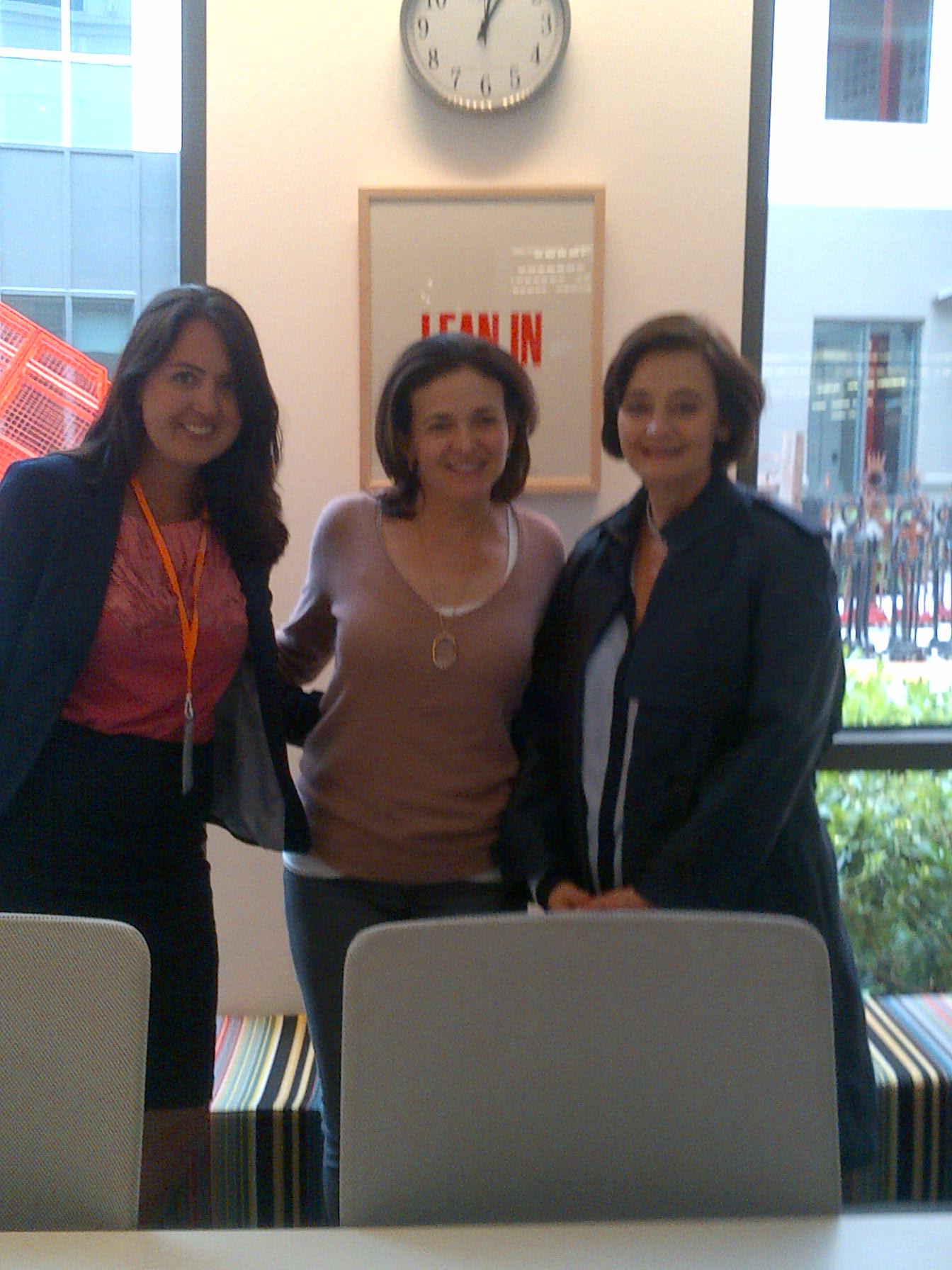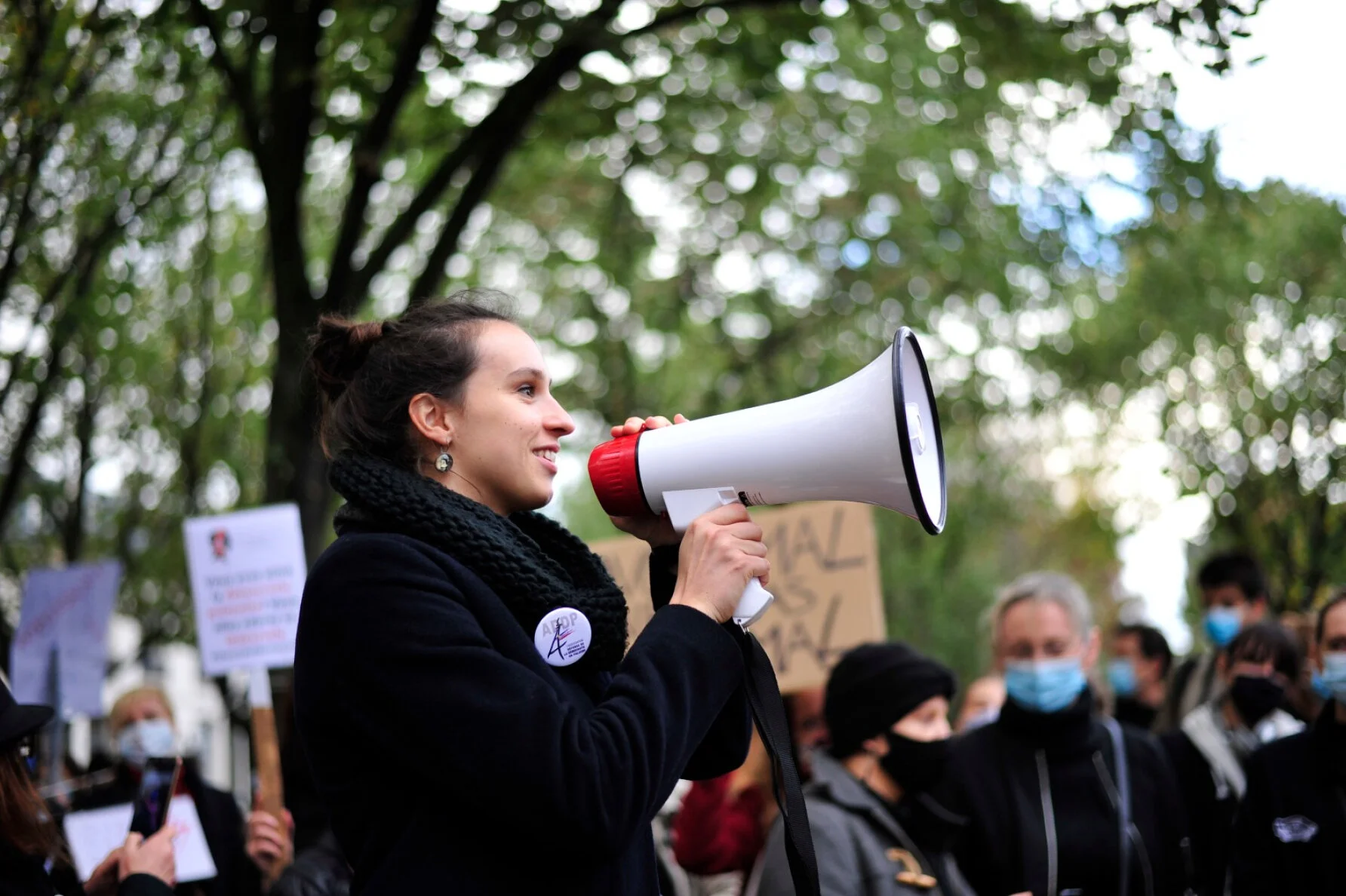Laura Stebbing
/FUNDRAISING AND PARTNERSHIPS DIRECTOR | CHERIE BLAIR FOUNDATION FOR WOMEN
Describe the Cherie Blair Foundation for Women and your position as the Fundraising and Partnerships Director
The Cherie Blair Foundation for Women is a non-profit that works with women entrepreneurs in developing and emerging economies to help them grow their businesses. We operate through three programmes. The first is a Mentoring Women in Business Programme, where we connect women entrepreneurs to mentors all over the world using technology.
We also have a Mobile Technology Programme, where we build apps and provide opportunities for women to use mobile technology to grow their businesses.
The third is an Enterprise Development Programme. With this programme, we provide incubation, coaching, and local mentoring support for women entrepreneurs.
We're all about using the power of technology and entrepreneurship to help women gain financial independence and ultimately gender parity – to really create change for themselves, their families, and their economies. Since we started nine years ago, we've worked with 136,000 women in over 100 countries.
As Director of Fundraising and Partnerships, I'm responsible for raising the income we need to run these awesome programmes, and also for building inclusive business partnerships. It’s been a journey: when I started in 2012, we were still a young, fledgeling NGO. Our income then was about £1.8 million. In my first three years, we saw enormous growth - raising £3.3 million.
You mentioned the Mobile Technology Programme at the Foundation. Do you seek partnerships with tech companies?
Absolutely. We built our Mentoring Programme with seed funding from Google, and on a Google-built platform. Across our work, we're really looking at how technology can change the world for women. Women in developing and emerging economies don't have equal access to technology. There's a huge digital gender divide, as you probably know. We released a report in 2010 with the GSMA, which is the global mobile body. It was so interesting because the report found that there were 300-million fewer female mobile phone users, which translated to a 13-billion-dollar revenue opportunity for mobile operators to start targeting female customers. On the back of that report, we developed partnerships with a number of global tech companies: from Vodafone to Nokia and MTN to, more recently, Facebook, PayPal and others.
Does your position demand a lot of travel?
It does. In the last year, I’ve travelled to Saudi Arabia, South Africa and across the US. I also take supporters and donors to the field to meet the women we're working with, which I love
12 years of experience
Education: BSc in Sociology from The London School of Economics | Graduate Diploma in Law (GDL) from BPP Law School
Previously worked at: Louisiana Capital Assistance Center | Reprieve UK | Finger in the Door Productions | Zimbabwe Lawyers for Human Rights | Home Office | Sing! Zimbabwe
Find Laura Online: Twitter | Cherie Blair Foundation for Women
Inspired by Laura’s Interview? Volunteer or find a job at Reprieve UK or Reprieve US | Sign up to the Cherie Blair Foundation for Women’s Newsletter and check their vacancies |
Exclusive Interview with Aisha Babalakin on March 17
You studied sociology at LSE. How did your degree contribute to your career plan - if you have a career plan?
I suppose there are two aspects that I look at in terms of how my degree contributed to my career. One was the actual degree, and the fantastic skills that you get from it: critical thinking and the ability to assimilate huge amounts of information. All of that learning and training of your brain is great. Sociology is all about the study of society and about learning what pressure points societies face and how to get around those. For me, that's really interesting because I'm fascinated by people’s experiences of life, and with how we can make things better for society as a whole.
Then there’s everything beyond your degree, which offers so much more. I was co-founder and first Chair of the Southern African Society at LSE, which was an amazing networking opportunity and gave me great experience of running and building something: organising events and getting people excited about and signing up to what we were doing. We had some amazing debates with top journalists, ambassadors, academics…and inevitably sponsorship from South African wine companies, which helped bring in the people!
Previously, you worked in the criminal justice field for Reprieve UK and the Home Office. Could you tell us about these positions?
When I left university, I was really interested in criminal justice policy. I'd done my dissertation on electronic monitoring of young offenders. I was out in East London interviewing young people who had committed homicide and other serious offences. I first worked for a year at the Home Office in the Police Race and Diversity Learning and Development programme. It was post Stephen Lawrence’s murder, looking at how to support police to recognise race and diversity issues - and subconscious bias.
I found it fascinating, but I realised that policy work was really not for me. I felt like I was in this ivory tower in the Home Office, working on five-year strategies and issuing plans on how we should do things. I really missed working with people directly. I read an article about Reprieve UK and about the work they were doing with people on death row in the Deep South of the United States. I was desperate to work in that area.
I went to a talk by Clive Stafford Smith, the founder of Reprieve UK. By the end of the talk I had booked my plane ticket - he was so inspiring. That's how I ended up going out to volunteer at the Louisiana Capital Assistance Centre in New Orleans for four months.
I returned and got a job with Reprieve UK as their first Fundraising Manager, which wasn’t part of the plan. I thought I was going to go to law school, but I realised that all of the stuff outside the black letter law interested me much more.
You had some previous experience in fundraising in Botswana and Mozambique
While I was working at the Home Office, one of my best friends in Zimbabwe put on The Vagina Monologues at the Harare International Festival of the Arts. It was massive - there were police trying to take the performance down because they didn't understand what it was. There was an incredible need for women to be able to shout out about their rights, and –
– Just Perform
After the performance, we thought, "Why don't we take this to other countries in Southern Africa?". I had lived in Botswana until I was 11 so knew that area well, and also wanted to take it to Mozambique. I fundraised for the project and ended up raising £10,000 from Mama Cash for our production company, Finger in the Door Productions. We were in Zimbabwe, Botswana and Mozambique for three months, working with local theatre organisations and women’s groups. In addition to the performances, we organised workshops around women’s own stories - the positive and negative things that happened to them as women. We worked with them to write and perform their own stories, similar to the Vagina Monologues, which was incredibly powerful. We also worked with a film company who travelled with us, eventually creating dvds and workbooks that were distributed across Southern Africa.
I had fundraised for all the projects I’d been interested in doing – from the Vagina Monologues to my internship in the Deep South, which is how I fell into fundraising. It was sort of a by-product of doing what I wanted to do!
In your opinion, what are the most valuable skills for a successful career in fundraising?
It's all about interpersonal skills and communication. You’ve got to be interested in working out what motivates people, and what would persuade them to support your cause. You need to be very good at developing relationships with people, and of course, it’s critical to be able to write and present well.
Also, one of the things that is probably important in any job but particularly so for fundraising is knowing how to prioritise and manage your time. I'm responsible for raising all the income for the Foundation’s different programmes and have to manage a really heavy workload. If you can show that you've maybe worked three different jobs, run two societies at University, managed to get a good degree, and you've got a well-rounded sense what’s important, then that's really helpful.
Do you find that the fundraising field is predominantly female? Or is it 50/50 female/male? If it is predominantly female, is there a reason for it?
That's a good question. I think there are a lot of women in fundraising, like the NGO sector in general, although you do find, frustratingly, that men tend to dominate senior positions. The majority of the staff at the Foundation are women – perhaps because women are drawn to causes that support women’s empowerment. But I do have one man on my team and 20% of the mentors in our Mentoring Programme are men.
Do you have a role model? If you do, who is it, and why?
That's such a great question. I love that one. Cherie [Blair] is a huge role model of mine.
She is enormously passionate about gender parity and works extraordinarily hard to try to make it happen in her lifetime. She’s over 60, and says her desire for change and passion is only getting stronger as she gets older! She also is just a good person and has a genuine interest in people, no matter who they are. I travel with her quite a lot, and wherever we are in the world, whoever she meets, she always makes an effort to talk to them and find out about their lives and what’s important to them. That interest in people is something that I really value.
The Cherie Blair Foundation for Women’s first CEO (now head of the Gender Secretariat at the IFC), Henriette Kolb, is a huge role model for me. She’s deeply dedicated to her work and her team, works incredibly hard and is also loads of fun. She’s enormously respected in her field and has a fantastic ability to just get things done. She hired me and I learnt so, so much from her.
Clare Algar (the former CEO of Reprieve UK) is also an incredible role model. She took over as CEO of Reprieve UK at something like 33 years old. She used to be a lawyer in private practice, and did something that was completely out of her comfort zone but was just brilliant at it. One of the really empowering things she taught me was about showing your personality at work – being your authentic self. She was able to build fantastic relationships with people from the get-go because they were drawn to her integrity and her personality, which was really inspiring.





